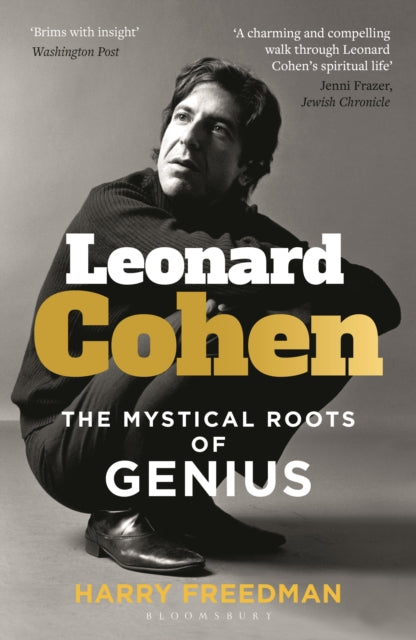Leonard Cohen: The Mystical Roots of Genius — Harry Freedman
Leonard Cohen: The Mystical Roots of Genius — Harry Freedman
Couldn't load pickup availability
'Leonard Cohen taught us that even in the midst of darkness there is light, in the midst of hatred there is love, with our dying breath we can still sing Hallelujah.' - The late Rabbi Lord Jonathan Sacks'Among the finest volumes on Cohen’s life and lyrics ... An exploration which would have intrigued and engaged Leonard himself.' - John McKenna, writer and friend of Leonard CohenHarry Freedman uncovers the spiritual traditions that lie behind Leonard Cohen's profound and unmistakable lyrics. The singer and poet Leonard Cohen was deeply learned in Judaism and Christianity, the spiritual traditions that underpinned his self-identity and the way he made sense of the world.
In this book Harry Freedman, a leading author of cultural and religious history, explores the mystical and spiritual sources Cohen drew upon, discusses their original context and the stories and ideas behind them. Cohen’s music is studded with allusions to Jewish and Christian tradition, to stories and ideas drawn from the Bible, Talmud and Kabbalah. From his 1967 classic ‘Suzanne’, through masterpieces like ‘Hallelujah’ and ‘Who by Fire’, to his final challenge to the divinity, ‘You Want It Darker’ he drew on spirituality for inspiration and as a tool to create understanding, clarity and beauty.
Born into a prominent and scholarly Jewish family in Montreal, Canada, Cohen originally aspired to become a poet, before turning to song writing and eventually recording his own compositions. Later, he became immersed in Zen Buddhism, moving in 1990 to a Zen monastery on Mount Baldy, California where he remained for some years. He died, with immaculate timing, on the day before Donald Trump was elected in 2016, leaving behind him a legacy that will be felt for generations to come.
Leonard Cohen: The Mystical Roots of Genius looks deeply into the imagination of one of the greatest singers and lyricists of our time, providing a window on the landscape of his soul. Departing from traditional biographical approaches, Freedman explores song by song how Cohen reworked myths and prayers, legends and allegories with an index of songs at the end of the book for readers to search by their favourites. By the end the reader will be left with a powerful understanding of Cohen’s story, together with a far broader insight into the mystical origins of his inimitable work.


